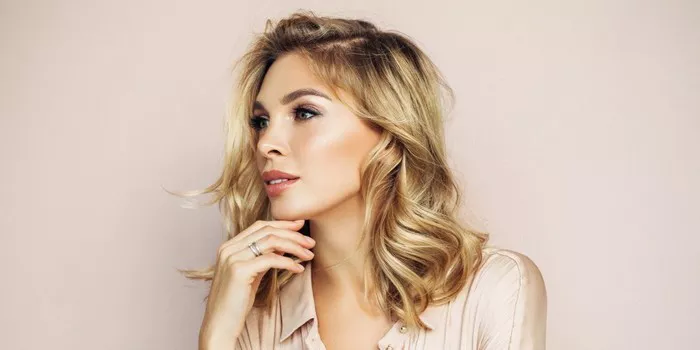Thinning hair can be a distressing concern for many individuals, but fortunately, there are several vitamins and nutrients that can support healthy hair growth and combat hair thinning. In this article, we’ll explore the vitamins that are beneficial for thinning hair, along with their sources and potential benefits.
Understanding Thinning Hair
Before delving into the vitamins that can help combat thinning hair, it’s essential to understand the common causes of hair thinning:
Genetics: Genetics play a significant role in hair thinning and can predispose individuals to conditions such as male or female pattern baldness.
Hormonal Changes: Hormonal imbalances, such as those that occur during pregnancy, menopause, or thyroid disorders, can contribute to hair thinning.
Nutritional Deficiencies: Deficiencies in essential vitamins and nutrients, such as iron, biotin, and vitamins A, D, and E, can impact hair health and contribute to thinning.
Stress: Chronic stress can disrupt the hair growth cycle and lead to increased shedding and thinning of the hair.
Best Vitamins for Thinning Hair
Several vitamins are known for their role in supporting healthy hair growth and combatting thinning hair. Here are some of the best vitamins for thinning hair, along with their sources and potential benefits:
Biotin (Vitamin B7):
Sources: Biotin is found in foods such as eggs, nuts, seeds, and leafy greens.
Benefits: Biotin supports the production of keratin, a protein that makes up the hair, skin, and nails. It can help strengthen the hair shaft and promote healthy hair growth.
Vitamin D:
Sources: Vitamin D can be obtained from sunlight exposure, fatty fish, fortified dairy products, and supplements.
Benefits: Vitamin D plays a role in hair follicle cycling and may help regulate hair growth cycles. Adequate vitamin D levels may be associated with reduced hair shedding and improved hair density.
Vitamin A:
Sources: Vitamin A is found in foods such as sweet potatoes, carrots, spinach, and liver.
Benefits: Vitamin A supports the production of sebum, an oily substance that moisturizes the scalp and helps keep hair healthy. However, excessive vitamin A intake can lead to hair loss, so it’s essential to consume it in moderation.
Vitamin E:
Sources: Vitamin E is found in foods such as nuts, seeds, avocados, and leafy greens.
Benefits: Vitamin E is a powerful antioxidant that helps protect the hair follicles from oxidative stress and damage. It can help improve scalp health and promote healthy hair growth.
Iron:
Sources: Iron-rich foods include red meat, poultry, fish, beans, lentils, and fortified cereals.
Benefits: Iron is essential for the production of hemoglobin, which carries oxygen to the cells, including the hair follicles. Iron deficiency can lead to hair thinning and hair loss, so it’s important to consume an adequate amount of iron-rich foods.
Other Nutrients for Healthy Hair
In addition to vitamins, several other nutrients are important for maintaining healthy hair and combating thinning. These include:
Omega-3 Fatty Acids: Found in fatty fish, flaxseeds, and walnuts, omega-3 fatty acids help nourish the scalp and promote healthy hair growth.
Protein: Hair is made up of protein, so consuming an adequate amount of protein-rich foods such as lean meats, poultry, fish, eggs, and legumes is essential for healthy hair growth.
Zinc: Zinc helps support the hair follicles and may help prevent hair loss. Good sources of zinc include oysters, beef, poultry, nuts, and seeds.
Silica: Silica is a trace mineral that helps maintain the strength and elasticity of hair. It can be found in foods such as bananas, oats, and cucumbers.
Conclusion
In conclusion, several vitamins and nutrients play a crucial role in supporting healthy hair growth and combatting thinning hair. Biotin, vitamin D, vitamin A, vitamin E, and iron are among the best vitamins for promoting hair health and preventing hair thinning. Additionally, omega-3 fatty acids, protein, zinc, and silica are important nutrients that contribute to overall hair health. By incorporating a balanced diet rich in these vitamins and nutrients, along with proper hair care practices and lifestyle habits, individuals can support healthy hair growth and maintain thick, luscious locks. If you’re experiencing significant hair thinning or loss, it’s essential to consult with a healthcare professional to identify any underlying causes and develop an appropriate treatment plan.
Which Shampoo Is Best For Oily Hair

